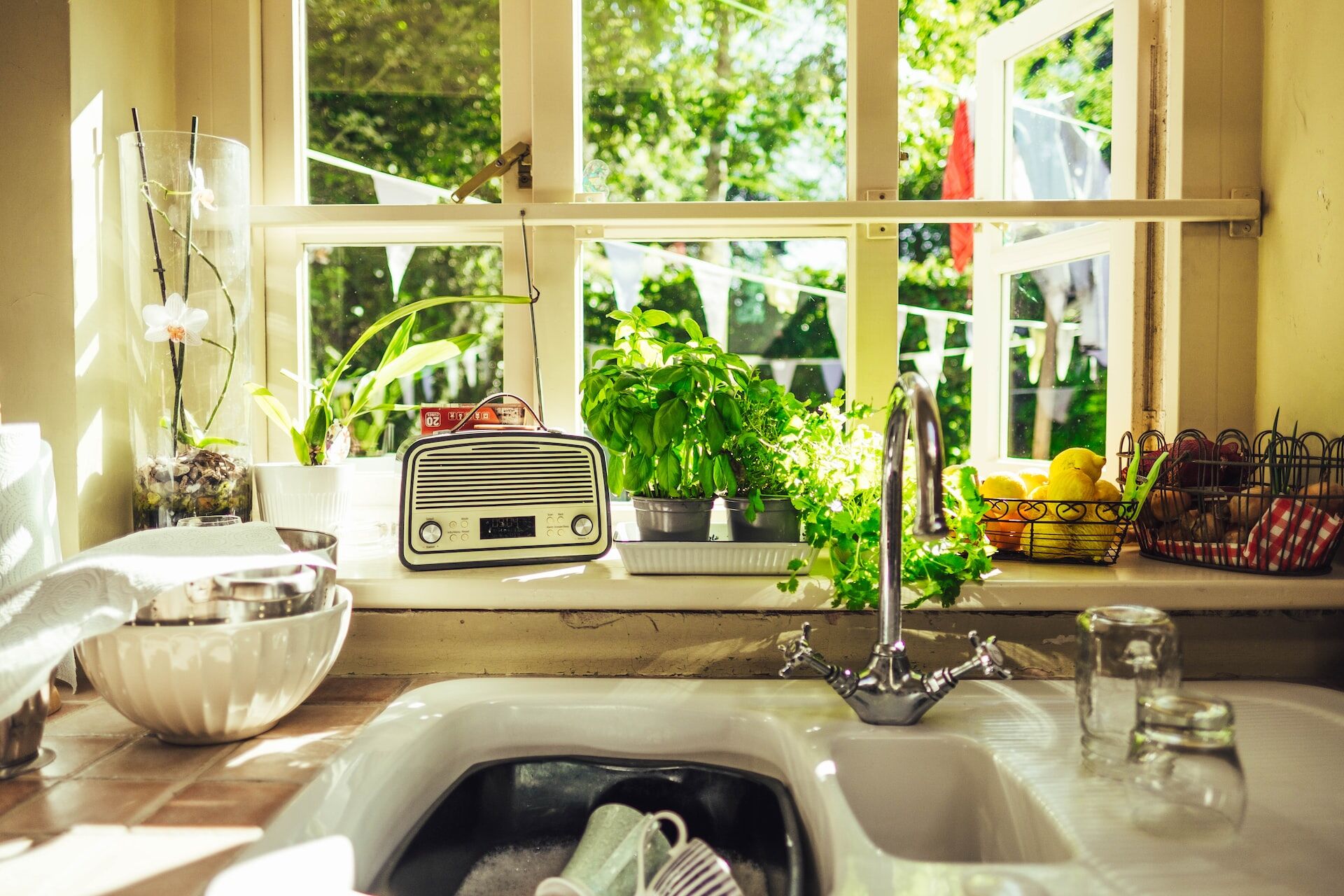Washing up isn’t the most fun chore to do, which is why a lot of people prefer the convenience of a dishwasher to washing up by hand. But there’s a common argument that dishwashers use more water and more energy than washing up…
So if you’re looking to save water and energy but also keep your dishes spick and span, we’ll be explore which washing up method is the most eco-friendly. We will compare the energy usage and water usage of standard washing up vs a dishwasher.
How Eco-Friendly Are Dishwashers?
How Much Water a Dishwasher Uses
The average new dishwasher models uses 2.2 litres of water per load. Depending on the model you have, your dishwasher may use water more efficiently: Which? found that the best standard size dishwashers use 1 litre per cycle, and the worst used just over 4 litres.
Older dishwasher models that were made before the 90s used much more water than modern dishwashers, which is where the notion that they were less efficient than standard washing up.
How Much Energy a Dishwasher Uses
The average dishwasher uses about 1.12 kWh of energy per load. To put that into a cost, as of October 2022, it would cost about 38p to run your dishwasher for an hour.
Again, the energy efficiency of your dishwasher will depend on the model you have. To find out the energy efficiency of a dishwasher, you need to find the energy efficiency label. Energy ratings go from A+++ to D with A ratings being the most efficient.
How Eco-Friendly is Washing Up?
How Much Water Washing Up Uses
To keep the comparison consistent we’ll continue to use their research. Their estimate is that you can wash-up two standard meal sets (one dinner plate, dessert plate, soup plate, glass, saucer, cup and set of cutlery) before needing to empty and refill a washing up bowl.
The ONS reports that the average household size in the UK is 2.4, so let’s do the maths:
The average washing up bowl holds 9 litres, and needs to be filled once to wash up two meals. You will need to refill the bowl up by at least half again to complete your washing up. So the amount to wash up the average household’s meal set would be 13.5 litres.
How Much Energy Washing Up Uses
The amount of energy required to heat up the water to wash up the average household’s dishes is 0.55 KWh. This would cost around 19p. This is assuming that the average household heats up their tap water from 10°C to 45°C water to fill up their washing up bowl that contains the 13.5 litres of water needed.
However, it’s not easy to estimate how much energy used because of how different household’s heating efficiency, and the method used to wash up.
If you’re using hot water to wash your dishes, as most people do, it will use more energy to heat your water. Contrary to belief, scalding water isn’t required to clean dishes: research has found that using antibacterial soap and rigorous scrubbing is the key to removing microbes.
So a top tip to save energy is to wash up with cooler water to save energy! However, hot water is much better at quickly loosening the hard caked-on food.
Which Washing Up Method Is Most Eco-Friendly?
If you want to save water, a dishwasher is the most eco-friendly method of washing up. Modern dishwashers use far less water than hand-washing dishes.
Does A Dishwasher Use More Water Than Washing Up?
According to tests by Which?: the average dishwashers uses four times less water than washing up by hand. Dishwashers are able to use water far more efficiently than using your hot water tap.
Which Uses More Energy: Dishwasher or Washing Up?
In terms of energy use, it is potentially cheaper to and more energy efficient to wash up by hand rather than use a dishwasher.
However, it is debatable whether dishwashers or hand washing use more energy, simply because it depends how efficient a household’s heating is. A dishwasher uses electricity to run and uses its own heating element to create the hot water. Whereas using the hot water tap to fill your sink is likely using a gas boiler.

